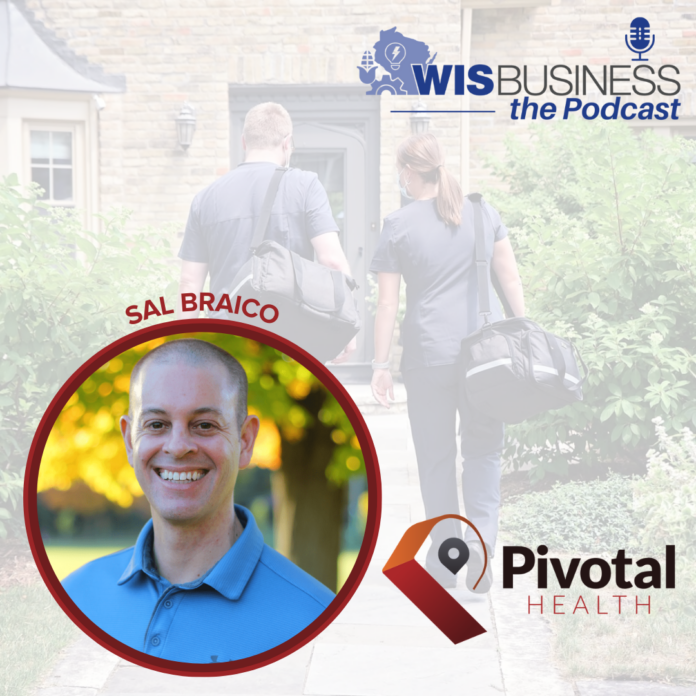This week’s episode of “WisBusiness: the Podcast” is with Sal Braico, CEO and co-founder of Pivotal Health.
This Madison company offers at-home health care services, with a team of clinicians that make house calls for patients. It first launched in 2021 and has since expanded to parts of northeastern Wisconsin.
“Pivotal Health providers go to the patient — to their home, apartment, dorm room, office, job site, soccer field — wherever that the patient is, for our providers to provide urgent care and family practice type of services,” Braico said.
He discusses the “non-consumer friendly” nature of the health care industry, noting “it’s always been so difficult to get appointments, to be seen quickly, and then when you are at the doctor’s office, you have to wait … and then you have no idea how much things cost.”
The idea for the business arose in 2020 when Braico and other co-founders saw that other companies were doing clinician house calls, though he says “these other companies were not really leveraging tech in a smart way.”
“We saw an opportunity to really use tech in smart ways, to again, make the whole process easier for the consumer and our provider,” he said.
Pivotal Health has a smartphone app for patients that handles scheduling, submitting medical information and payments. On the provider side, the company has automated much of the charting and administrative work, Braico said.
“We have a very lean team here, a very small team, with the bulk of the team being providers,” he said.
Braico discusses the company’s expansion to more of the state and plans for future growth, fueled by a crowdfunded investment effort. The company has separately raised more than $3 million from venture capital groups and individual investors.
“We’ve got a lot of very happy patients, and we believe that this model can really scale very, very well,” he said. “We’ve put in a lot of time, effort, capital into making this tech platform, such that we can very cost-effectively scale this platform.”
Listen to the podcast below, sponsored by UW-Madison:






